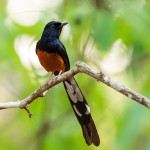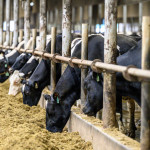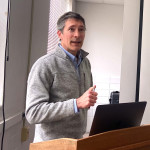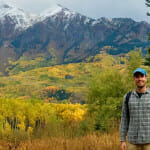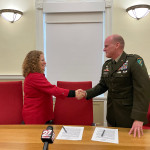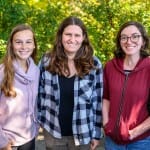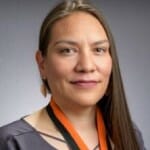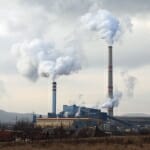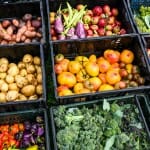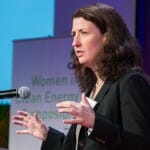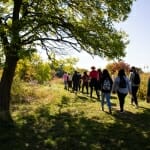Tag Nelson Institute for Environmental Studies
Why do birds make so many different sounds? A new UW–Madison study gets at the underlying factors
Ecological and evolutionary traits like body mass and beak size influence the vocalization frequency of bird species, such as the white-rumped shama (Copsychus… Read More
Zapping manure with special electrode promises an efficient method to produce fertilizers, other chemicals
The researchers' preliminary analyses show it could offer considerable benefits by cutting water and air pollution while simultaneously creating products that farmers could use or sell. Read More
Meet Wisconsin’s new state climatologist, Steve Vavrus
Vavrus is an expert on global climate change, extreme weather and Wisconsin climate. Read More
The Sky’s the Limit: Autistic youth explore science on their terms at STEM camp
Rotating through stations, campers learn to estimate the canopy cover of a nearby wooded area (by pretending they’re aliens), calculate the ages of tree rings and create mini ecosystems in Mason jars. Read More
Inaugural Bassam Z. Shakhashiri Public Science Engagement Award recognizes excellence in outreach
A conservation scientist with a goal of finding ways to equitably protect tropical forest biodiversity and a teaching faculty member whose outreach work has led to a method for teaching visually impaired students about nanotechnology received the award. Read More
UW students get taste of real-world learning
Through capstone courses, internships and partnerships with employers, students have worked on projects all over the state and nation. Read More
Grad students work with climatologist on tool to alert communities to dangerous heat levels
In practice, the new warning system could help policymakers make decisions for how their population can stay healthy during extreme heat. Read More
UW-Madison professor appointed to commission addressing violent crime against Indigenous Americans
Grace Bulltail’s research centers on natural resource management, tribal resource sovereignty and environmental justice in Indigenous communities. Read More
Cutting air pollution emissions would save 50,000 U.S. lives, $600 billion each year
Eliminating air pollution emissions from energy-related activities in the United States would prevent more than 50,000 premature deaths each year and provide more than $600… Read More
UW–Madison scholar wins 2022 Carnegie Fellowship
Monica White will use the $200,000 award to complete the research and writing of her second book, We Stayed: Agriculture, Activism, and the Southern Black Rural Families Who Fought to Keep the Land. Read More
Shifting food choices reducing climate impact of American diet
Lower consumption of beef, dairy, chicken, pork, and eggs accounted for more than 75% of the observed diet-related carbon dioxide savings during the study period. Read More
At bioenergy crossroads, should corn ethanol be left in the rearview mirror?
New research shows that the carbon emissions from using land to grow corn can negate or even reverse any climate advantages of corn ethanol relative to gasoline. Read More
Students lead way in sustainability effort
These UW–Madison students pair environmental studies majors with everything from law to fashion to finance as they learn how to apply environmental solutions to their chosen fields. Read More
Student’s innovative climate research could change building design
“By the end of the 21st century, building cooling in Madison will be very similar to Montgomery, Alabama,” says Nelson Institute graduate student Gesangyangji. That startling realization motivated her to research how projected climate data can inform building energy design. Read More
Why cities around Wisconsin are feeling the heat
While Wisconsin may be known for its “frozen tundra,” an increase in hot, humid summer days is bringing attention to Wisconsin’s urban heat islands and their impact on human health. Read More
Project to create anti-racism education wins Mellon grant
The project will collect oral histories and information, particularly regarding the lived experiences of Black and Native students, to create the new curricula. Read More

